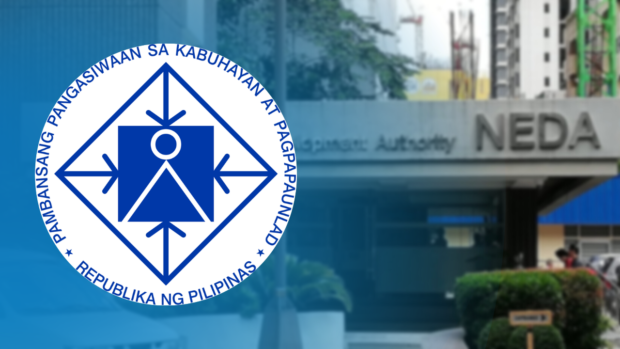
The National Economic and Development Authority. INQUIRER FILE PHOTO
DAVAO CITY–Economic planners here are bullish about implementing the Supreme Court’s Mandanas ruling that increased the national internal revenue allotments (IRA) share of local government units (LGUs), saying it will help boost LGU’s role in attracting investments to the region.
Maria Lourdes Lim, regional director of the National Economic Development Authority (Neda) in region 11, said the increase in IRA share would enable LGUs to embark on various activities and interventions to draw in more investments to their areas. “With increased shares from national taxes and wealth, we can expect the LGUs to ramp up their efforts in attracting more investments,” Lim said.
The Mandanas ruling implemented last year through Executive Order 138 Series of 2022 mandates a 55 percent increase in IRA share among LGUs. Signed by former President Rodrigo Duterte in June 2021, it also created the committee of devolution as part of the government’s decentralization efforts.
“With the devolution of certain functions of the executive branch of the national government to the LGUs, we see a much more prominent role for LGUs in supporting economic activities and investments, especially on agriculture and tourism,” Lim said in a press conference following the presentation of Davao region’s socioeconomic performance and outlook here.
She said good governance at the local level, such as the implementation of business processing and permitting and licensing systems through digital platforms and updating their investment approach to provide incentives to investors would also boost their capacity to attract investments. Lim said they could conduct more promotional and marketing activities through festivals, fairs and exhibits. “These would be opportunities for more investors to come,” she said.
“LGUs right now are very bullish in attracting investments into their particular localities. They are in fact already active in the participation in the City and Municipalities Competitiveness Index (CMCI),” said Ma. Belinda Ambi, regional director of the Department of Trade and Industry (DTI) in Davao region. “LGUs are now looking into their incentives code to make it more attractive to potential investors. The role now of the LGUs in attracting investments is very crucial,” Ambi said.
Neda expects growth in investments in the Davao region this year due to the “speedy post-pandemic recovery efforts of global, national, and local economies,” according to Lim.
Investments committed by Filipino and foreign investors in the Davao region amounted to P 6.2 billion for the first three quarters of 2022, which more than doubled the P 2.4 billion posted in the same period of 2021,” Lim said.
Lim cited three major developments that would boost investments in the region; namely: the declaration of the Davao region as a tourism and investment-ready destination by the Regional Development Council; increased assistance to the Micro Small Medium Enterprises (MSMEs) which play an important role in job creation and poverty reduction; and the modernization of agriculture, forestry, and fisheries (AFF) sector as another growth driver. She said these sectors would all benefit from the reopening and adding of direct and international flights at the Davao International Airport.
DTI assisted a total of 827 MSMEs in the first three quarters of 2022, a 39 percent increase from the 596 MSMEs they assisted in the same period of 2021. Ambi said DTI also extended some P61.7 million worth of loans for MSME for the period, a 29 percent increase from the amount that DTI released in the same period in 2021.
RELATED STORY:
P200-billion IRA not enough, local governments claim